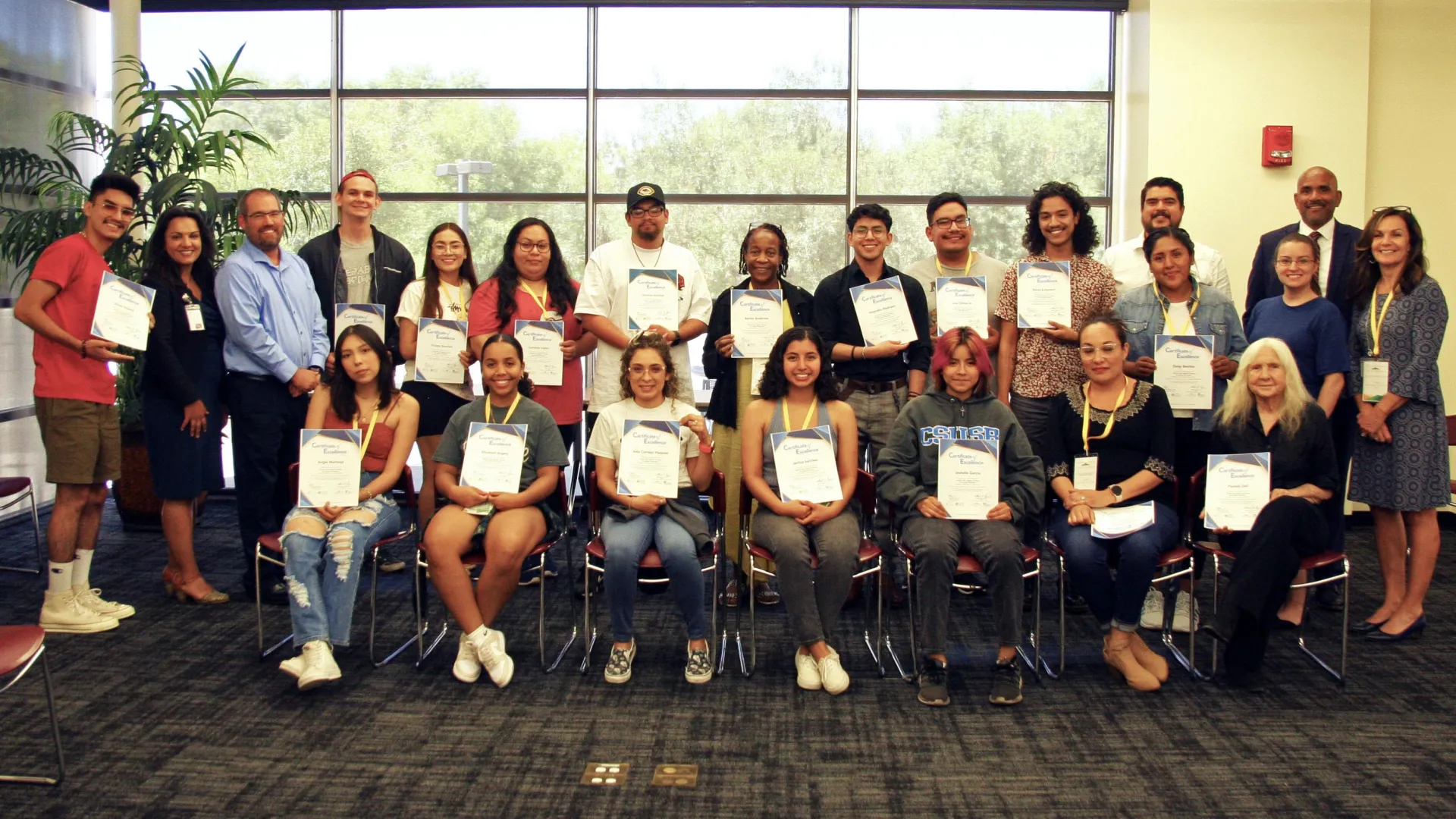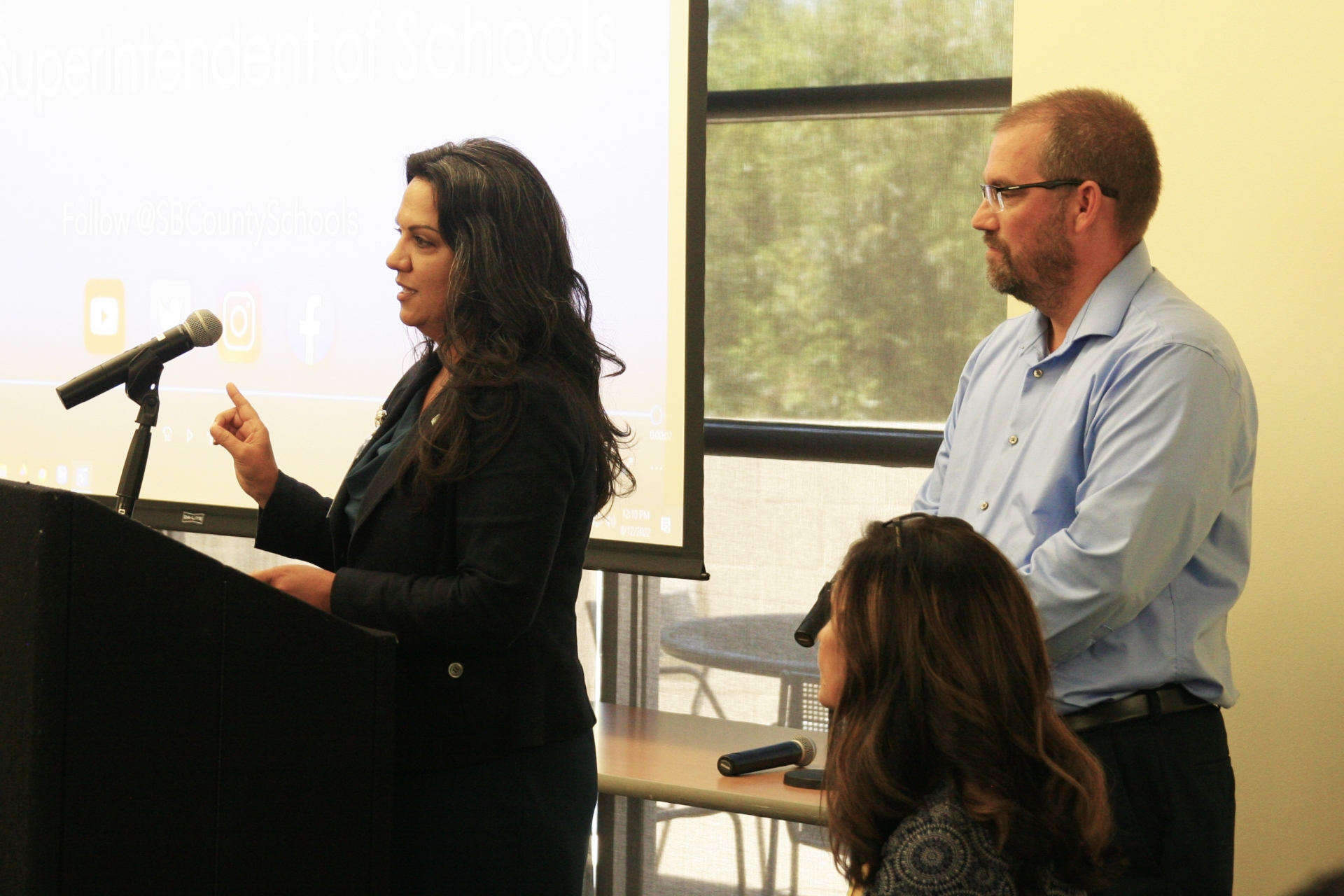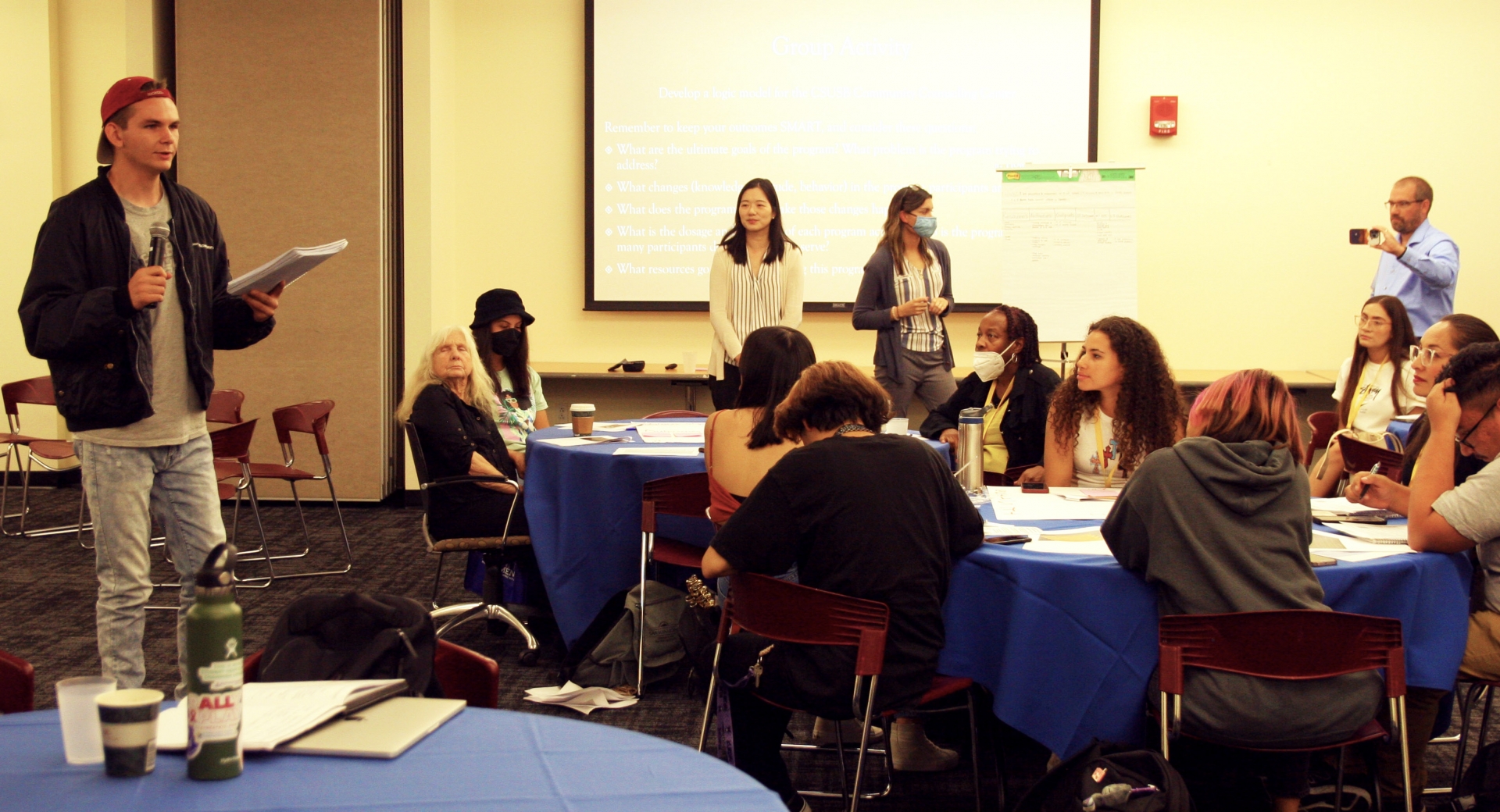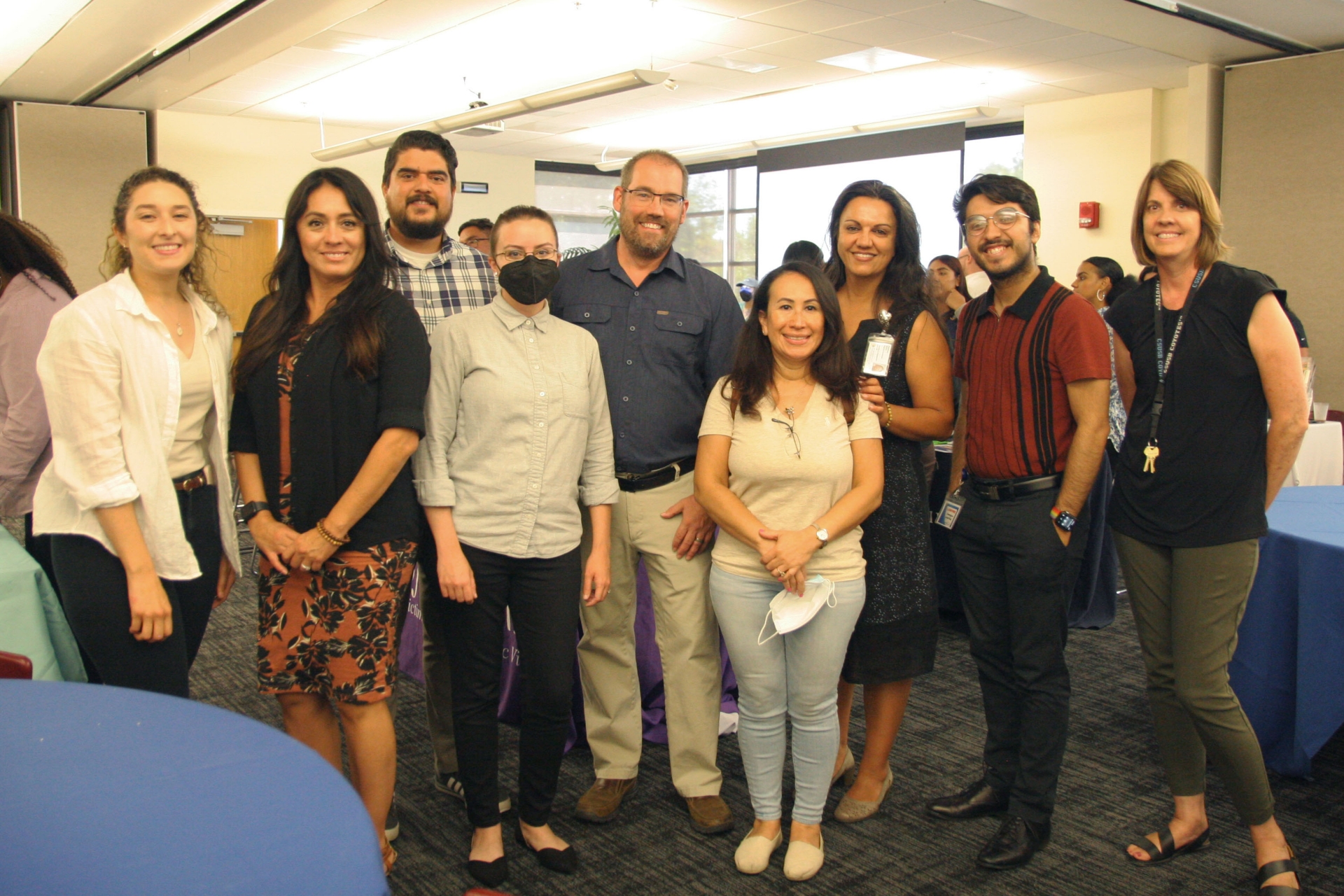Joe Gutierrez | Office of Strategic Communication | (951) 236-4522 | joeg@csusb.edu

While suicide is a leading cause of death among young people, a group of Cal State San Bernardino students participated in a weeklong workshop on suicide prevention and learned how to address the challenge head on.
Alejandro Medrano, a fifth-year student who is a peer health educator on campus, said that he learned not to be afraid to ask if someone is having thoughts about suicide if they appear to be in any sort of distress. “That really helped me realize that if somebody is having suicidal thoughts, that isn’t something that you should be ashamed of,” he said.
Medrano was among the students who participated in the Peer Support Training for Suicide Prevention Aug. 8-12, organized by the university’s Institute for Child Development and Family Relations (ICDFR) and the San Bernardino County Superintendent of Schools (SBCSS).
The day-long training sessions, which took place at the Santos Manuel Student Union South Fourplex, were part of a continuation of the partnership between ICDFR and SBCSS over the last two years through various grants.

“This particular project continued to evolve out previous grant work,” said Beatrice Blake of the SBCSS, who facilitated the workshop with co-worker Addison Saenz. “This is the first of its kind centered on suicide prevention, building a suicide safer community. And the hope is that we have imprint on the community as a whole, not only in the K through 12 system, but also at the university level, because it’s our graduates who are going to enter the workforce and work with our students. What we’re doing with the students here is introducing them to resources that are available to them, or that they may be able to pass on to their peers.”
The week included sessions on:
- In-depth trainings and workshops on suicide prevention;
- Leadership skills development;
- Knowledge about mental health challenges for high-risk populations;
- Networking opportunities with campus and community agencies that provide suicide prevention and mental health services; and
- Interactive action planning for applying these skills to CSUSB and the community.
On the Thursday of that week, the Fourplex buzzed with conversation as the students met and networked with representatives of 16 community agencies that are resources in addressing mental health challenges, including suicide.
“You can feel the energy,” said Mark Agars, director of ICDFR and professor of psychology, as he took in the scene. “They’re engaged.”
Medrano said the exposure to those organizations was helpful – it gave him important resources that he could turn to and refer people, whether they are family members, friends or even strangers. “I think I’m more likely to help someone in need,” he said. “Having suicidal thoughts is something that anybody can go through, which really changed my whole perspective on suicide and suicide intervention.”
And changing people’s perspective on suicide is key – it is the second leading cause of death among people aged 10–34 and the 12th leading cause of death overall in the U.S., according to the Centers for Disease Control and the National Institutes for Health statistics cited by the National Alliance on Mental Illness. It’s also one of the reasons September is National Suicide Prevention Month.
Yet the focus on the issue shouldn’t be confined to one month out of the year.
Blake shared this: “These are not my words, but on day one (of the workshop), before we even started the training, one of the students said, ‘You know, my experience is that we only talk about suicide prevention once a year.’ But they said we have to talk about it every day, because we have to address the needs of our mental health, well-being and wellness on a daily basis, not just once a year.
“Our hope is to bring awareness and create a safe environment where it is OK to talk about sensitive information, even such as suicide,” she said. “And if we’re able to talk about it, that opens the door that I’m not going to judge you, I’m not going to hold it against you. I’m going to listen, and I’m helping in any way that I can. The more we talk about it, the more we create a safe space to openly share, then it becomes the norm and not the exception.”
Agars and Blake said this workshop is the first of many they hope to take place.

“Our hope is that this is something that we do more than annually, that we do multiple times a year and basically grow the number of students who have these skills and have this awareness to support their peers here, and in the long run, the community,” Agars said.
And the model for the workshop ICDFR and SBCSS put together is one that can be easily duplicated and shared at other universities, Blake said.
“We’re going to develop a toolkit of some resources so that it can be replicated across the state, across the nation, for anyone who wants to do it,” she said.
“It’s not a complicated model, but it’s a powerful one,” Agars said. The resources are available. It becomes a matter of finding ways to integrate them, he said.
Pointing to the partnership of ICDFR and SBCSS, Agars said, “It’s the integrations across agencies and each of us reaching out to our partners and friends in the community who are invested in suicide prevention, bringing them in and coordinating them.”
And, in the long run, the community benefits.
“All of these students will leave here, and they’re going to be our educators in our schools, or they’re going to be serving our schools, they’re going to be working for agencies like the ones that are here today,” Agars said. “What they learn today is going to matter for them in those roles.”
On the final day, Rafik Mohamed, CSUSB interim provost, expressed his gratitude for the students taking the time to participate in the workshop.
“You have become the conduits for people in crisis to the resources that can help them,” he said.
